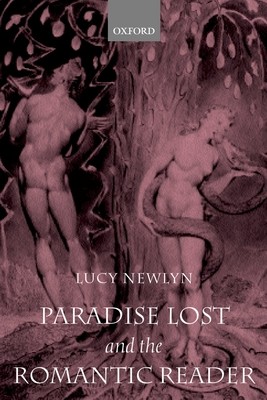
- We will send in 10–14 business days.
- Author: Lucy Newlyn
- Publisher: Oxford University Press, USA
- ISBN-10: 0199242585
- ISBN-13: 9780199242580
- Format: 15.6 x 23.4 x 1.7 cm, softcover
- Language: English
- SAVE -10% with code: EXTRA
Reviews
Description
Was Milton on the side of the angels or the devils? Was he republican or anti-republican, feminist or misogynist? Did he value innocence or experience? This book shows how the Romantic reader responded, in complex and often paradoxical ways, to multiple ambiguities inherent in the very language of Paradise Lost. It examines ambivalent allusions to Satan and God, in responses to the French Revolution (Coleridge and Wordsworth), in studies of the origin of evil (Godwin, Blake, the Shelleys), in accounts of the creative imagination, and it looks at how Eve pervades representations of female sexuality (Byron and Keats). The book culminates in a chapter on Blake's Milton and also considers such prose writers as De Quincey, Lamb, Wollstonecraft, and Hazlitt.
EXTRA 10 % discount with code: EXTRA
The promotion ends in 20d.23:33:45
The discount code is valid when purchasing from 10 €. Discounts do not stack.
- Author: Lucy Newlyn
- Publisher: Oxford University Press, USA
- ISBN-10: 0199242585
- ISBN-13: 9780199242580
- Format: 15.6 x 23.4 x 1.7 cm, softcover
- Language: English English
Was Milton on the side of the angels or the devils? Was he republican or anti-republican, feminist or misogynist? Did he value innocence or experience? This book shows how the Romantic reader responded, in complex and often paradoxical ways, to multiple ambiguities inherent in the very language of Paradise Lost. It examines ambivalent allusions to Satan and God, in responses to the French Revolution (Coleridge and Wordsworth), in studies of the origin of evil (Godwin, Blake, the Shelleys), in accounts of the creative imagination, and it looks at how Eve pervades representations of female sexuality (Byron and Keats). The book culminates in a chapter on Blake's Milton and also considers such prose writers as De Quincey, Lamb, Wollstonecraft, and Hazlitt.


Reviews